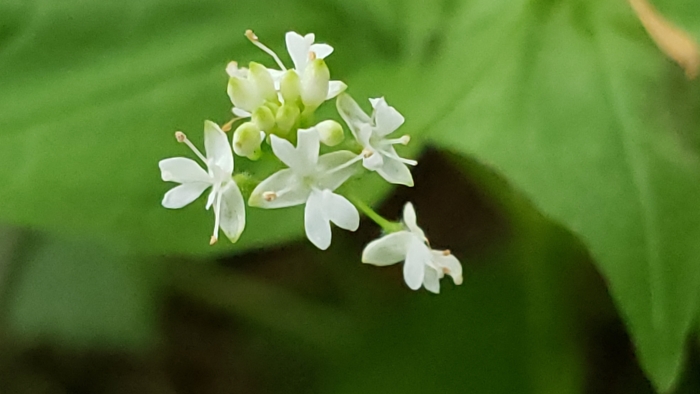Alpine Enchanter’s Nightshade
(Circaea alpina)
Alpine Enchanter’s Nightshade (Circaea alpina)
/
/

Gavin Slater
CC BY 4.0
Image By:
Gavin Slater
Recorded By:
Copyright:
CC BY 4.0
Copyright Notice:
Photo by: Gavin Slater | License Type: CC BY 4.0 | License URL: http://creativecommons.org/licenses/by/4.0/ | Rights Holder: Gavin Slater | Publisher: iNaturalist | Date Created: 2021-05-27T14:03:44-07:00 |

























Estimated Native Range
Summary
Circaea alpina, commonly known as alpine enchanter’s nightshade or small enchanter’s nightshade, is a perennial herb that is native to cool, moist, deciduous, and mixed forests, as well as stream banks and moist mountainous regions across the Northern Hemisphere. It typically grows 4-12 inches tall and features opposite, ovate leaves with coarsely dentate margins. This plant is notable for its small, delicate white to light pink flowers that bloom from mid-May to early September, which are not particularly showy but add a subtle charm to shaded garden areas. The flowers give way to bur-like fruits that can catch onto fur and clothing, aiding in seed dispersal.
Alpine enchanter’s nightshade is valued for its ability to thrive in shady conditions, making it an excellent ground cover for woodland gardens and shaded borders. It prefers consistently moist soil and can tolerate a range of soil types, as long as they are well-drained. It is relatively low-maintenance, requiring minimal care once established. Gardeners should be aware that it can spread via stolons, which allows for easy naturalization but can also lead to unwanted spreading in some garden settings. While it can hybridize with Circaea lutetiana, the offspring are typically sterile, which can help limit its spread.CC BY-SA 4.0
Alpine enchanter’s nightshade is valued for its ability to thrive in shady conditions, making it an excellent ground cover for woodland gardens and shaded borders. It prefers consistently moist soil and can tolerate a range of soil types, as long as they are well-drained. It is relatively low-maintenance, requiring minimal care once established. Gardeners should be aware that it can spread via stolons, which allows for easy naturalization but can also lead to unwanted spreading in some garden settings. While it can hybridize with Circaea lutetiana, the offspring are typically sterile, which can help limit its spread.CC BY-SA 4.0
Plant Description
- Plant Type: Herb
- Height: 0.5-1.5 feet
- Width: 0.5-1 feet
- Growth Rate: Moderate
- Flower Color: Pink, White
- Flowering Season: Spring, Summer
- Leaf Retention: Deciduous
Growth Requirements
- Sun: Part Shade, Full Shade
- Water: Medium
- Drainage: Medium
Common Uses
Bird Garden, Butterfly Garden, Low Maintenance
Natural Habitat
Cool, moist, deciduous, and mixed forests, as well as stream banks and moist mountainous regions across the Northern Hemisphere
Other Names
Common Names: Enchanter’s Nightshade, Alpine Circaea, Alpine enchanter’s-nightshade
Scientific Names: , Circaea alpina, Circaea alpina var. alpina, Circaea minima, Circaea minor,
GBIF Accepted Name: